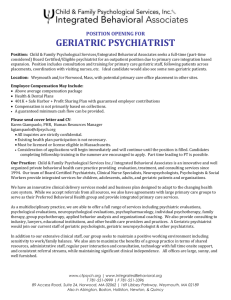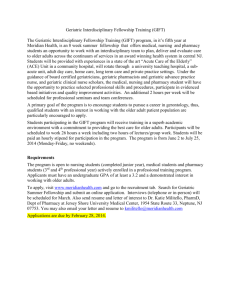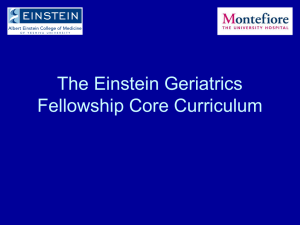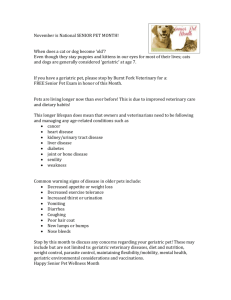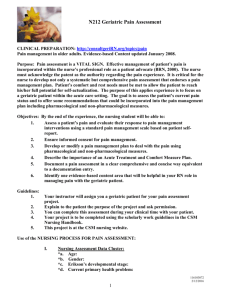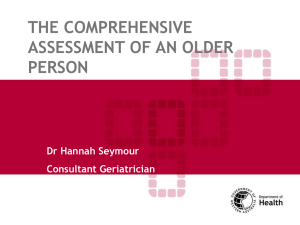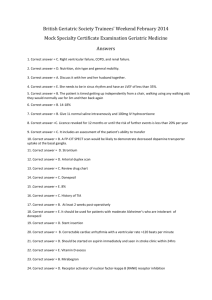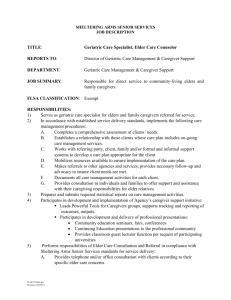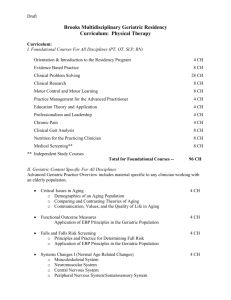UNM FAMILY MEDICINE RESIDENCY
advertisement
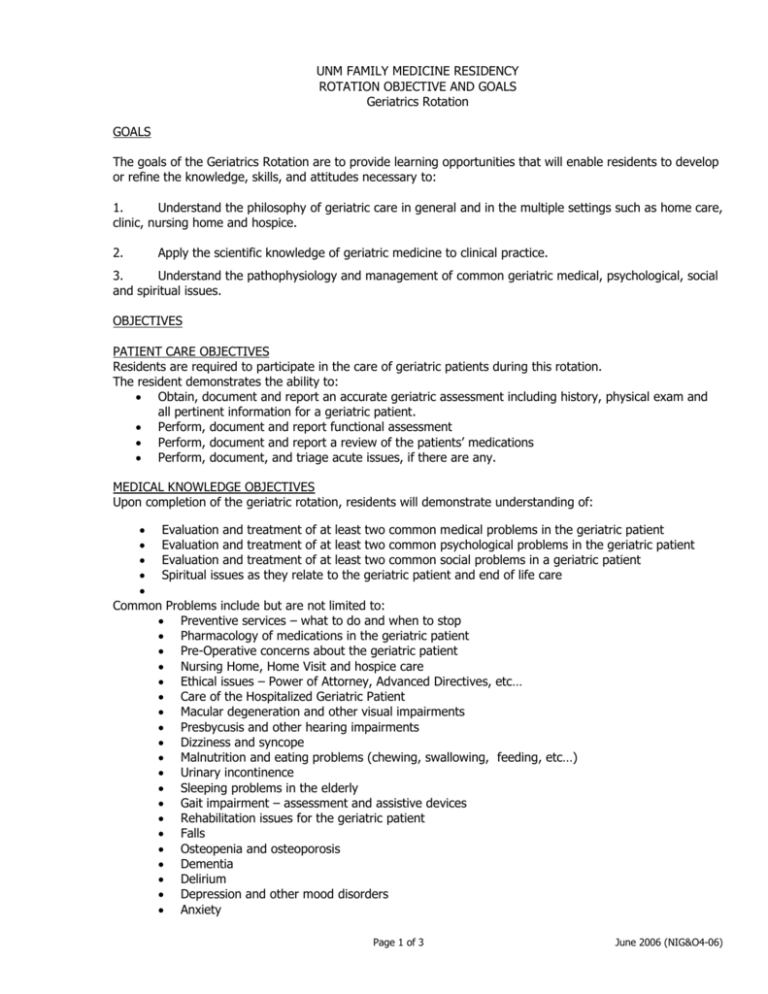
UNM FAMILY MEDICINE RESIDENCY ROTATION OBJECTIVE AND GOALS Geriatrics Rotation GOALS The goals of the Geriatrics Rotation are to provide learning opportunities that will enable residents to develop or refine the knowledge, skills, and attitudes necessary to: 1. Understand the philosophy of geriatric care in general and in the multiple settings such as home care, clinic, nursing home and hospice. 2. Apply the scientific knowledge of geriatric medicine to clinical practice. 3. Understand the pathophysiology and management of common geriatric medical, psychological, social and spiritual issues. OBJECTIVES PATIENT CARE OBJECTIVES Residents are required to participate in the care of geriatric patients during this rotation. The resident demonstrates the ability to: Obtain, document and report an accurate geriatric assessment including history, physical exam and all pertinent information for a geriatric patient. Perform, document and report functional assessment Perform, document and report a review of the patients’ medications Perform, document, and triage acute issues, if there are any. MEDICAL KNOWLEDGE OBJECTIVES Upon completion of the geriatric rotation, residents will demonstrate understanding of: Evaluation and treatment of at least two common medical problems in the geriatric patient Evaluation and treatment of at least two common psychological problems in the geriatric patient Evaluation and treatment of at least two common social problems in a geriatric patient Spiritual issues as they relate to the geriatric patient and end of life care Common Problems include but are not limited to: Preventive services – what to do and when to stop Pharmacology of medications in the geriatric patient Pre-Operative concerns about the geriatric patient Nursing Home, Home Visit and hospice care Ethical issues – Power of Attorney, Advanced Directives, etc… Care of the Hospitalized Geriatric Patient Macular degeneration and other visual impairments Presbycusis and other hearing impairments Dizziness and syncope Malnutrition and eating problems (chewing, swallowing, feeding, etc…) Urinary incontinence Sleeping problems in the elderly Gait impairment – assessment and assistive devices Rehabilitation issues for the geriatric patient Falls Osteopenia and osteoporosis Dementia Delirium Depression and other mood disorders Anxiety Page 1 of 3 June 2006 (NIG&O4-06) Psychotic disorders and behavioral problems Alcohol and drug abuse in the elderly Dermatologic problems common in the elderly Dental issues in the elderly COPD and other pulmonary problems in the elderly Age related cardiovascular issues Hypertension CAD Hypothyroidism and other endocrine problems Diabetes in the geriatric patient Gastrointestinal diseases – constipation, strictures/swallowing issues Renal problems in the elderly- dialysis and when to stop Gynecological diseases and disorders including postmenopausal bleeding and menopausal symptoms Prostate diseases Sexuality in the older patient Neurologic issues including Parkinson’s Hematologic issues including B12 deficiency Cancers – Colon, Breast, Lung, Multiple myeloma, etc… Financial issues (Medicare, Social Security, etc….) Pain management in the elderly Cultural issues and the elder patient PRACTICE-BASED LEARNING AND IMPROVEMENT OBJECTIVES The resident: recognizes his/her own strengths and limitations asks questions as an engaged, critical learner locates, appraises, and assimilates evidence from scientific studies related to their patients’ health problems uses information technology to manage information, access on-line medical information, and support their own education INTERPERSONAL AND COMMUNICATION SKILLS OBJECTIVES The resident: makes organized and effective oral presentations elicits and provides information using effective listening, nonverbal, explanatory, questioning, and writing skills communicates with the patient, family and members of the healthcare team in a timely, developmentally and culturally appropriate manner and being sensitive to communication issues and barriers of the geriatric patient. works effectively and respectfully with others as a member or leader of a health care team or other professional group PROFESSIONALISM OBJECTIVES The resident will: accept responsibility for patient care never misrepresent patient care information consistently perform in a punctual, reliable and collegial manner demonstrate dress, hygiene and manner of speech that consistently reflect appropriate standards demonstrate a responsiveness to the needs of patients and society that supersedes self-interest demonstrate accountability to patients, society and the profession demonstrate a commitment to excellence and on-going professional development demonstrate a commitment to ethical principles pertaining to provision or withholding of clinical care, confidentiality of patient information, informed consent, and business practices Page 2 of 3 June 2006 (NIG&O4-06) demonstrate sensitivity and responsiveness towards patients', colleagues' and team members' gender, age, culture, disabilities, ethnicity and sexual orientation SYSTEMS-BASED PRACTICE OBJECTIVES The resident will: practice cost-effective health care and resource allocation that does not compromise quality of care advocate for quality patient care and assist patients in dealing with system complexities to minimize discomfort or confusion recognize that the patient is part of a greater system and provide care in a manner that supports continuity know how to partner with health care managers and health care providers including nurse practitioners to assess, coordinate, and improve health care and know how these activities can affect system performance PROCEDURAL SKILLS The resident will demonstrate judgment and knowledge about procedures possible at the clinic, home, nursing home and hospice settings and perform such procedures, if needed. Page 3 of 3 June 2006 (NIG&O4-06)

